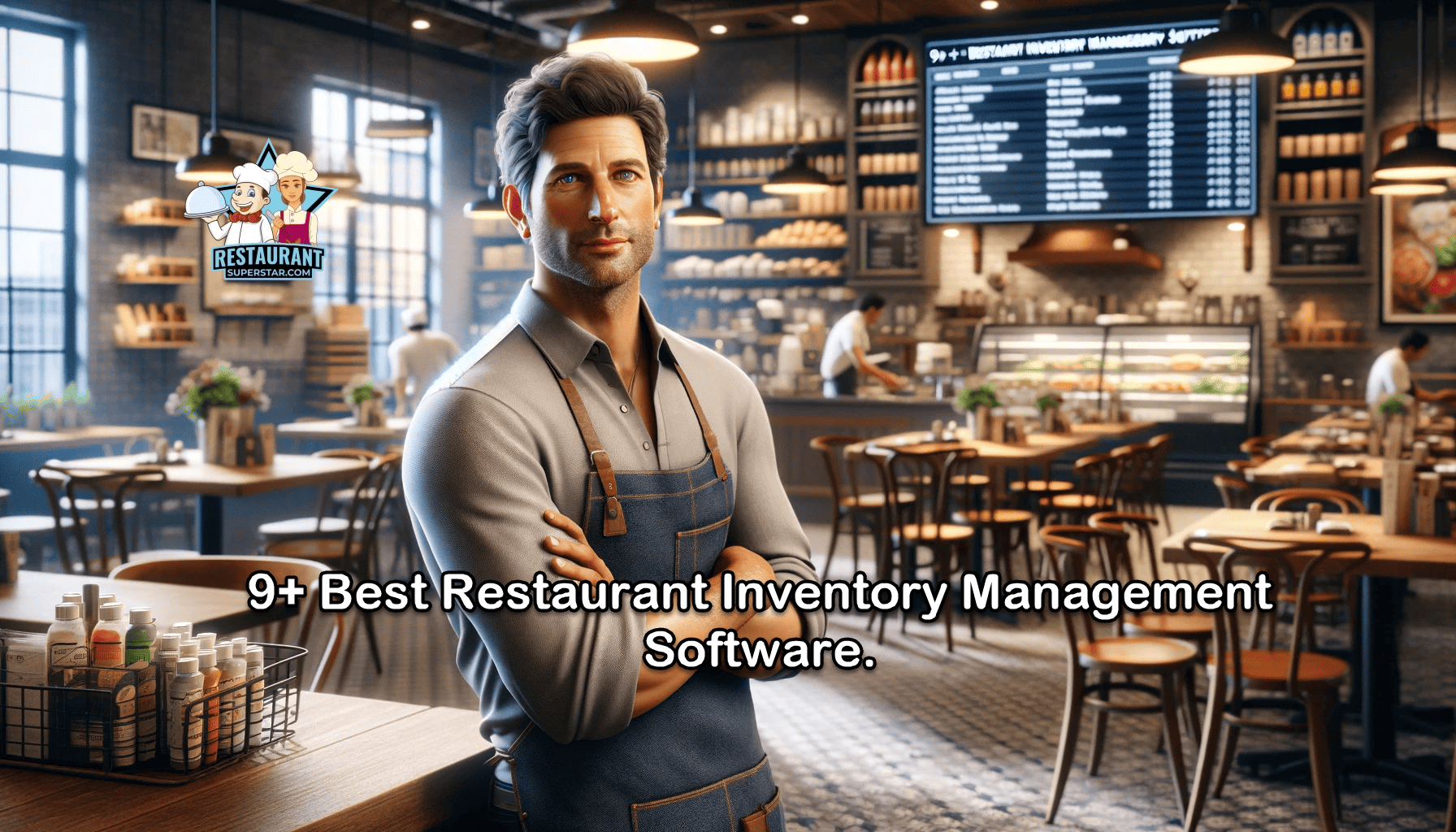How Much Does a Restaurant Manager Make?
If you’re pondering the question, “How much does a restaurant manager make?” you’re in the right place.
This article is designed to answer this burning question and delve deeper into the factors that shape a restaurant manager’s salary.
With a blend of insights and critical information, we aim to keep your curiosity piqued and provide you with a complete understanding of what to expect in this dynamic field.
How Much Does a Restaurant Manager Make?
So, how much does a restaurant manager make? On average, restaurant managers in the United States can earn anywhere from $35,000 to over $80,000 annually. However, this is just the tip of the iceberg. The fascinating part is that numerous elements come into play when determining this salary, including location, experience, restaurant type, etc.
This comprehensive guide will explore every facet influencing a restaurant manager’s earnings.
Whether you’re a new restaurant owner trying to gauge competitive salaries, a young chef dreaming of climbing the managerial ladder, or simply curious about the financial prospects of a career in restaurant management, this article is your go-to resource.
We’ve covered everything from dissecting salary ranges based on geographical locations to understanding the impact of experience and restaurant type.
We’ll also dive into the benefits and additional compensations that often get overlooked but significantly contribute to a manager’s total earnings.
Factors Influencing a Restaurant Manager’s Pay

In the hospitality world, a restaurant manager’s role is as crucial as a secret ingredient in a signature dish.
It’s a multifaceted job that requires a blend of leadership, culinary understanding, and business acumen.
But here’s the exciting part: just like no two restaurants are the same, the salaries for their managers vary greatly. And this isn’t just about numbers on a paycheck; it’s a story of ambition, skill, and the journey up the career ladder.
The salary of a restaurant manager isn’t a fixed number. Instead, it dances to the tunes of different factors. Location, for instance, plays a massive role.
Think about it – managing a swanky downtown eatery in New York City is a different ball game compared to overseeing a family diner in a small town.
Each setting has its unique challenges and perks, reflected in the compensation.
But location isn’t the only player. The type of restaurant, the manager’s experience, the size and success of the establishment, and even additional benefits like health insurance or profit sharing – all mix to create a salary that’s as unique as your restaurant’s flavor profile.
So, let’s dive into this culinary pot of information. We’ll simmer down the details, summarize the facts in easy-to-digest bites, and help you understand the full scope of a restaurant manager’s earning potential.
Whether you’re setting the stage for your restaurant’s future or planning your career path in this vibrant industry, this guide is your recipe for knowledge.
1 – Location Influences Earnings
When figuring out “how much does a restaurant manager make?” think of it like choosing the perfect location for a new restaurant. Just like the right spot can make or break your eatery, the location of a restaurant plays a huge role in determining a manager’s salary.
1.1 Geographic Variation
Let’s break it down with an example. Imagine two restaurants, both serving up mouth-watering dishes. Still, one’s nestled in the heart of New York City, while the other’s cozied up in a small town.
The manager in NYC might be juggling a faster pace, higher living costs, and perhaps a more extensive staff, all of which usually translate to a higher salary.
Conversely, the small-town manager might earn less. Still, they might enjoy a closer community feel and lower living expenses.
Here’s a glance at how this plays out:
- Metropolitan Areas: Higher salaries due to increased cost of living and greater job demands.
- Smaller Towns/Rural Areas: Generally lower wages, but often accompanied by a lower cost of living.
1.2 Impact of Restaurant Type
Now, let’s stir in another flavor: the type of restaurant. A fine dining establishment, with its elegant ambiance and complex menus, often means a heftier paycheck for the manager. These spots attract high-paying customers and require a manager with finesse and expertise.
On the other hand, while serving a higher volume of customers, casual dining and fast-food chains might not offer the same salary level.
But remember, these places can be fantastic training grounds for budding managers and often come with the perk of structured training programs.
To sum it up:
- Fine Dining: Higher salaries reflect the upscale service, expertise required, and clientele.
- Casual Dining/Fast Food: Generally more modest salaries, but great for gaining experience and stepping into the management world.
Whether you’re a new restaurant owner budgeting for your dream team or a young chef plotting your path to management, understanding these nuances can help you set realistic goals and expectations. It’s not just about the paycheck; it’s about finding the right fit for your skills and lifestyle.
2 – Role of Experience and Expertise
Diving into the recipe for a restaurant manager’s salary, experience, and expertise are vital spices that can enhance the flavor. For anyone asking, “How much does a restaurant manager make?” it’s crucial to consider these ingredients.
2.1 Importance of Years of Experience
Imagine a restaurant manager as a fine wine – they get better with age. The more years they’ve spent mastering the art of management, the more valuable they become. Here’s how experience can spice up the salary:
- New to the Game: Managers starting might see wages on the lower end of the spectrum. Think of this Time as an apprenticeship, where learning and growing are the main courses.
- Seasoned Veteran: With years under their belt, these managers command higher salaries. They bring a wealth of knowledge, from handling busy Friday nights to managing a diverse team, and this expertise is worth its weight in gold.
2.2 Skillset and Qualifications
Let’s talk about the garnish on top: the skills and qualifications.
- Culinary Expertise: A manager who knows their way around a kitchen – maybe even one who can jump in if needed – is a gem. This kind of hands-on knowledge can lead to a bigger paycheck.
- Beverage Knowledge is essential in establishments focusing on wines, cocktails, or craft beers. Managers who can effectively pair drinks with dishes or manage a bar scene are in high demand.
- Financial Acumen: Let’s face it, a restaurant is a business, and managers who can balance the books, manage budgets, and understand the financial ebb and flow can expect a higher income.
- Certifications: Think of these as the special sauce. Certifications in food safety, hospitality management, or even sommelier courses can increase a manager’s market value.
Understanding the value of experience and expertise helps set fair, competitive salaries for new restaurant owners. And for the young chefs and future managers out there, this is your roadmap.
Investing in your skills and gathering experience isn’t just about climbing the career ladder; it’s also about fattening up that salary.
Ultimately, it’s a mix of what you know and how long you’ve been doing it that seasons a restaurant manager’s salary. So keep learning, keep growing, and watch how your value in the hospitality industry simmers to perfection!
3 – Link to Restaurant Performance and Structure
When it comes to a restaurant manager’s salary, think of it as a reflection of the restaurant’s overall performance and structure. It’s like being the captain of a ship – the smoother the sailing, the better the rewards.
3.1 Restaurant Revenue and Profitability
Let’s start with the lifeblood of any restaurant: its revenue and profitability. Here’s how they tie into a manager’s earnings:
- High-Flying Restaurants: Managers often see a slice of that success in their paychecks in a restaurant raking in the dough. Think about it – if you’re steering a profitable ship, you will likely get a better share of the treasure.
- Modest Eaters: The salary might not be sky-high at a restaurant with tighter margins. But remember, every experience counts, and managing a lean operation can be a valuable learning experience.
In a nutshell, the more profitable the restaurant, the higher the potential salary for the manager. It’s a game of numbers, and being at the helm of a successful venture certainly pays off.
3.2 Independent vs. Chain Restaurants
Now, let’s look at the type of establishment: independent restaurants versus chains.
- Independent Restaurants: Here’s where creativity meets flexibility. Independent restaurants often offer more room for negotiation when it comes to salaries. If you’re managing one of these, your salary might depend on how well the restaurant is doing and how indispensable you are to its success.
- Chain Restaurants: Think of these as following a recipe. Chain restaurants usually have more structured salary scales. They offer stability and often come with clear expectations and benefits. However, there might be less wiggle room for salary negotiations than in independent establishments.
Understanding this link between performance, structure, and salary is vital for new restaurant owners and aspiring managers.
It’s about finding the right fit for your skills and ambitions. Do you thrive in a structured environment with clear expectations, or do you prefer the freedom and responsibility of managing an independent restaurant?
In the restaurant world, the structure and success of the place you manage can be as influential on your salary as the dishes you serve.
4 – Considering Additional Compensation
Calculating “How much does a restaurant manager make?” is not just about the base salary. There are extra toppings, in the form of benefits and perks, that can sweeten the deal significantly. Let’s dish out these additional compensations.
4.1 Benefits and Perks
Here are some of the expected benefits that often come with a restaurant manager’s role:
- Health Insurance: This is a big one. Having your medical needs covered is a massive perk, especially in today’s world.
- Paid Time Off (PTO): Everyone needs a break. PTO is your chance to recharge without worrying about the paycheck.
- Retirement Plans: Thinking about the future is essential. Some restaurants offer plans like a 401(k), helping you save for those golden years.
- Performance Bonuses: Meeting targets or going above and beyond can sometimes lead to bonus checks – always a pleasant surprise.
- Staff Meals: Pay attention to this one. Free or discounted meals can be a delicious and cost-saving perk.
- Professional Development: Opportunities for further training or attending industry events can be invaluable for career growth.
These benefits might only sometimes show up in your monthly paycheck. Still, they add significant value to your overall compensation package. They’re the secret sauce that makes a good salary taste even better.
4.2 Tipping Revenue in Certain Restaurants
In some restaurant settings, tips can be the cherry on top of a manager’s earnings. Here’s how it works:
- Upscale Establishments: In fine dining restaurants, where tipping is generous, managers sometimes get a piece of the pie. This usually depends on the restaurant’s policy but can significantly boost your income.
- Casual or Fast Food: Tipping might be less significant in these places, but every little bit helps.
It’s important to note that tipping practices vary widely and can depend on the restaurant’s location, type, and policies. While not every manager gets a share of the tips, it can be a tasty addition to your salary in places where they do.
So, for the aspiring restaurant managers, the young chefs, and the new restaurant owners, remember to consider these additional compensations. They’re part of what makes the hospitality industry exciting and rewarding.
It’s not just about what you earn on paper – it’s also about the benefits that make your career in restaurant management both fulfilling and financially rewarding.
5 – Salary Ranges and Averages
Let’s talk numbers. Understanding the salary ranges for restaurant managers is like peeking into the kitchen before deciding on a meal – it gives you a real taste of what to expect. From entry-level to the top-tier, these figures can vary widely. Still, they offer a solid guide to gauge potential earnings.
5.1 Entry-Level to Top-Tier Salaries
Picture a ladder with each rung representing a step up in salary – here’s a rough idea of what each step might offer:
- Entry-Level Managers: Starting, you might look at salaries ranging from $35,000 to $45,000 annually. This is the training ground, where gaining experience is as valuable as the paycheck.
- Mid-Level Managers: As you climb up with experience and skills, expect to see figures between $45,000 and $60,000. This is where your growing expertise starts to pay off.
- Experienced Managers: With a solid track record, you could earn between $60,000 and $80,000. This level reflects a deep understanding of the industry and a proven ability to manage successfully.
- Top-Tier Managers: At the peak, especially in high-end establishments or in significant cities, salaries can soar above $80,000, sometimes reaching well into six figures, depending on various factors like location, restaurant type, and individual achievements.
Remember, these are ballpark figures, and salaries can swing based on numerous factors like the restaurant’s success, the local economy, and more.
5.2 Regional Breakdown in the USA
Now, let’s slice it further with a regional breakdown. Different parts of the USA offer different averages:
- New York: In the Big Apple, where the cost of living and dining scene is sky-high, average salaries can range from $56,321 to $70,522.
- California: Home to culinary hotspots like Los Angeles and San Francisco, California offers averages between $58,724 and $73,425.
- Texas: With a mix of urban and rural settings, Texas sees a range from $50,621 to $63,229.
- Florida: Known for its tourist-driven economy, Florida’s range is about $48,528 to $61,227.
These ranges give a snapshot of how geography plays into the mix. Whether you’re a young chef in Texas dreaming of managing a big-city restaurant or a new restaurant owner in Florida budgeting for management, these figures are crucial.
Understanding these salary ranges and averages is like having a recipe for career planning. It helps you set realistic goals and expectations, whether just starting in the industry or looking to make your next big move.
Beyond the Numbers
Stepping away from the crisp bills and cents, let’s talk about the heart and soul of being a restaurant manager. It’s not just about “how much does a restaurant manager make?” but also about the quality of life that comes with the job. After all, a fulfilling career is more than just a paycheck.
Work Environment
The atmosphere you work in can add a unique flavor to your job. A supportive team, a respectful and communicative owner, and a positive work culture make a difference. It’s like comparing a kitchen in constant chaos to one that’s well-organized and harmonious.
Job Satisfaction
Job satisfaction in restaurant management is like the secret ingredient in your favorite dish – it’s essential. This comes from feeling valued, being part of a successful service, and seeing happy customers.
When you love what you do, it reflects every aspect of your job, from staff morale to customer satisfaction.
Growth Opportunities
Imagine your career as a dish that you’re constantly improving. Growth opportunities, whether learning new management techniques, understanding the latest culinary trends, or even moving towards owning your restaurant, keep your career fresh and exciting. Always look for a role that encourages you to grow and flourish.
Work-Life Balance
Lastly, the elusive work-life balance. It’s like finding the perfect seasoning – too little or too much can throw everything off.
A good balance means you have time to enjoy life outside work, recharge your batteries, and return to your role with renewed energy and passion.
Understanding these aspects is crucial for new restaurant owners in creating a work environment that attracts and retains top talent.
For young chefs and aspiring managers, remember that your well-being and job satisfaction are as important as your salary.
Choose a path that offers you a wholesome and rewarding journey, not just a financial one.
In the end, it’s these factors beyond the numbers that truly define a successful career in restaurant management.
They’re the ingredients that make your professional life profitable, genuinely satisfying, and enriching.
Research and Resources
As we wrap up our journey through the ins and outs of a restaurant manager’s salary, it’s Time to hand over your chef’s hat to the world of restaurant management, which is vast and varied, and staying informed is critical.
To get the most accurate, up-to-date information tailored to your specific needs, turn to the treasure trove of online resources available at your fingertips.
Online Salary Resources
Think of websites like Indeed, Salary.com, and Glassdoor as your sous chefs in the kitchen of career planning. These platforms provide a wealth of data, including:
- Salary Estimates: Get detailed, location-specific salary data to help you understand what to expect in your area.
- Job Listings: Not just for salary info, these sites also list current job openings, giving you a glimpse into what employers are offering.
- Company Reviews: Get insights from employees about work culture, benefits, and more, which can be just as valuable as salary information.
Industry Forums and Social Media
Remember to tap into the knowledge and experiences shared in industry forums and social media platforms. LinkedIn, for instance, is not just for networking; it’s also a great place to follow industry trends and join discussions.
Professional Associations
Associations like the National Restaurant Association offer resources, networking opportunities, and industry reports that can keep you updated and informed.
Local Resources
Sometimes, the best information is correct in your backyard. Local restaurant associations, community job boards, and conversations with fellow professionals can provide valuable, real-world insights.
Continual Learning
Lastly, remember that the hospitality industry is constantly evolving. Keep learning, stay curious, and don’t hesitate to ask questions.
Whether you are a new restaurant owner, a young chef, or simply exploring the field, knowledge is a critical ingredient in your career recipe.
So, explore these resources and give yourself the information you need to make informed decisions about your career or business.
In the world of restaurant management, staying informed and connected is as important as having the right skills in the kitchen.
Conclusion
As we end our culinary journey through the world of restaurant management salaries, let’s take a moment to savor the essential flavors we’ve uncovered.
Key Points Summary:
- Location Matters: Like in real estate, location is crucial in determining a restaurant manager’s salary. From bustling city centers to quiet rural areas, where you work significantly influences your earnings.
- Experience and Expertise Pay Off: Seasoning your career with years of experience and specialized skills can lead to a more lucrative paycheck.
- The Business Side of Things: The restaurant’s financial health – be it an independent establishment or part of a chain – plays a significant role in determining your salary.
- Extra Toppings: Pay attention to the additional benefits and perks, including health insurance, paid Time off, and tipping revenue, which all add to the total compensation package.
- A Range of Salaries: From entry-level to top-tier, restaurant manager salaries vary widely, reflecting the diverse nature of the industry.
- More Than Just Money: Job satisfaction, work environment, growth opportunities, and work-life balance are essential ingredients for a fulfilling career in restaurant management.
In the bustling kitchen that is the restaurant industry, understanding the compensation and career trajectory is about more than just crunching numbers. It’s about having a holistic view of what makes a career rewarding and sustainable.
Whether you’re a new restaurant owner, a budding chef, or someone passionate about the hospitality industry, remember that a successful career in restaurant management is a blend of financial rewards, personal growth, and job satisfaction.
Embrace this knowledge, use it to make your career decisions, and watch as your journey in the world of restaurant management unfolds into a fulfilling and prosperous adventure.
Jeff Smith is a Restaurant Consultant with over 20 years of hospitality experience ranging from server to owner and general manager. He focuses on Restaurant POS technology as well as restaurant marketing. Check out our world-famous restaurant resources page for a comprehensive offering of hand-picked resources and tools to help your business. You can also check out some of our other restaurant business articles.




